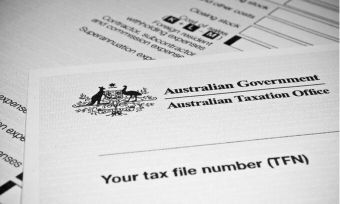Are you a sole trader, or considering starting your own business? Registered tax agent Bonita Cory shares expert insights about sole trader tax, including her tax tips.
Over 10% of Australia’s workforce are sole business owners or managers, with popular industries for self-employment including construction, professional services and agriculture. And, every year, over 100,000 people take the plunge to start their dream and become self-employed as a sole trader, according to data from the Australian Bureau of Statistics (ABS).
If you’ve recently started your own business or are thinking about making the leap, then you should know the legal ramifications and the tax implications.
Who is a sole trader?
A sole trader is a legal term that describes a person who owns and operates a business in their personal capacity. This can be contrasted with a business that is operated through an entity such as a trust or a company. Another term for a sole trader is a sole proprietor, with both having the same meaning.
All risk and reward attach to the individual when operating a sole trader business, and the profits and losses aren’t shared with another person. Sole traders can employ staff, but they cannot employ themselves. This can be contrasted with a business operated through a company. The company is the legal entity, can employ staff including the directors and lodges its own tax return.
Setting up a business as a sole trader is the simplest and easiest method, which is why it is very popular. If you trade under your own name, then you do not need to register a business name. Alternatively, you can still be considered a sole trader if you trade under a registered business name – the key factor is that you as an individual are solely responsible for all aspects of the business.
How much tax do sole traders pay?
Sole traders don’t need a separate business Tax File Number (TFN), as they lodge their sole trader income and expenses in their personal income tax return. Sole traders will, however, need an Australian Business Number (ABN) to run a business in Australia. If their sales turnover is over or likely to be over $75,000 a year, they will also need to register for GST.
As a sole trader’s business income is reported in their personal income tax return, individual marginal tax rates apply. The government allows a Small Business Income Tax offset of up to $1,000 per annum, calculated based on the proportion of a taxpayer’s total business net income compared to their total taxable income.
Tax tips for sole traders
Here are a few of my general tax tips for sole traders in Australia:
- Sole traders should keep separate bank accounts for personal and business use, as it makes running your business and tax time much easier and more cost-efficient. It also helps with managing cashflow.
- Consider investing in an accounting software subscription to keep track of your income and expenses.
- Make sure you understand the PSI rules.
- Ensure you answer Yes to “Are you a small business entity?” under Item 15 of your tax return to claim the Small Business Tax Offset, if relevant.
- Remember to put aside tax during the year to save the heartache of a big tax bill at the end.
If you have any questions or need personal financial or tax advice, it’s important to speak to a suitably qualified adviser about your situation.
What is personal services income and why does it matter?
Personal services income (PSI) is a term used in Australia’s tax legislation to describe income or reward generated from the personal efforts or skill of an individual (such as a marketing expert, human resource consultant or accountant, for example), as opposed to profits generated from an asset (such as if you rent out a car), from selling a product (such as at a restaurant or retail shop) or from licensing your intellectual property or IP (such as a patent on an invention). PSI also doesn’t affect salary or wages that people earn as employees.
Many years ago, the Australian Government was concerned that some people were minimising tax by sharing income with family members or claiming deductions not otherwise allowed if earned as a wage earner. Consequently, in 2000, the federal government introduced legislation to create a level playing field by limiting tax deductions where PSI is being earned.
Will my sole trader business be affected by personal services income?
To determine if your sole trader business is caught under the PSI rules, you can work through the following steps, as outlined by the Australian Taxation Office (ATO).
Step 1 – Review each of your contracts
If more than 50% of the business’s income is as a result of your personal efforts or skills, then you need to move to Step 2. If not, the PSI rules do not apply to you.
Step 2 – Results test
Under the terms of your contracts, are you being paid for a result or are you being paid for your time? To satisfy the results test, you have to meet all three of the following conditions:
- you are being paid at least 75% of your income to achieve a result (including being paid after achieving the result);
- the risk to rectify any defects belongs to you; and
- you have to provide all the necessary tools and equipment to complete the work relating to that 75%.
If you meet all these conditions, you generally won’t need to worry about the PSI rules. However, if you fail to meet any one of these conditions or are being paid on an hourly rate, you won’t satisfy the results test. If you cannot satisfy the results test, move to Step 3.
Step 3 – The 80% rule
This test asks whether 80% or more of your income comes from one client. If you have clients that are associates of each other, such as subsidiaries, partners or trustees of related entities, you need to count the income as coming from the one client. If more than 80% of your income comes from one client and its associates, then the PSI rules apply. If not, move to Step 4.
Step 4 – The remaining tests
If you have worked through the previous steps and come to this one, you must pass at least one of the following tests to avoid the PSI rules:
- Unrelated clients test and finding work through advertising. To pass this test, you must have work from at least two unrelated clients and obtain the work by advertising to the public at large, such as via a website, LinkedIn or word of mouth. Any clients obtained through a labour hire firm will be deemed related so can only be counted as one client for the purposes of this test.
- Employment test – If you employ others to complete at least 20% of your principal work (i.e., the key work you get paid for under a contract, as opposed to support services such as administration tasks) or you employed an apprentice for at least 50% of the year, then you pass this test.
- Business premises test – Where you have an office for your exclusive use throughout the whole year that is separate to your home and your clients’ premises, and you use it to generate your personal services income for at least 50% of the time, then you pass this test. Leasing a desk in a shared working space does not suffice, as it is not exclusive use of the business premises. Also, a home office does not pass, as it is not separate from your residence. Furthermore, leasing or owning an office for only part of the year is insufficient, unless you only commenced trading during the year, and you leased or owned the office throughout this full period.
If you aren’t sure whether the PSI rules apply to you after working through these steps, seek professional tax advice or contact the ATO for help.
If you’re certain the PSI rules don’t apply, then there’s nothing extra for you to do. If the PSI rules do apply, then there are limits on the tax deductions you can claim.
What limits apply for tax deductions for personal services income?
Where the PSI rules apply, you are unable to claim a tax deduction against the PSI income for the following:
- Occupancy expenses to work from home, including mortgage interest, rent, rates, land taxes, and home and contents insurance.
- Payments, including super contributions, to associates such as family members for ‘non-principal’ support work. Support work includes administration and clerical tasks. You can claim a deduction for payments to family members for work directly related to principal work in generating the PSI income, and for wages to a non-associate for support work. Deductions for super payments made to associates for principal work is limited to the superannuation guarantee rate, which is currently 10%.
Where you have a mix of income, it needs to be separated to determine the deductions you can and can’t claim against each category of income. Further, if the PSI rules apply then you will need to complete ‘Item 14 – Personal Services Income’ in your individual tax return.
Key takeaways
Setting up as a sole trader is the least expensive and simplest way to start a business, but there are responsibilities and tax considerations which come with it, so make sure you understand the risks involved and keep good records of all income and expenses.
Cover image source: BearFotos/Shutterstock.com.
 Bonita is a chartered accountant and chartered tax advisor with more than 20 years of experience, who has an interest in helping small business owners build profitable, well-operated businesses. Her experience includes financial accounting for an ASX-listed company, tax and insolvency work with chartered accounting firms and small business consulting for the past 15 years. Bonita started Enterprise Growth with Jodi Reck, in order to create a balance between her two passions in life – work and family.
Bonita is a chartered accountant and chartered tax advisor with more than 20 years of experience, who has an interest in helping small business owners build profitable, well-operated businesses. Her experience includes financial accounting for an ASX-listed company, tax and insolvency work with chartered accounting firms and small business consulting for the past 15 years. Bonita started Enterprise Growth with Jodi Reck, in order to create a balance between her two passions in life – work and family.
This content was reviewed by Sub Editor Tom Letts and Sub Editor Jacqueline Belesky as part of our fact-checking process.







Share this article